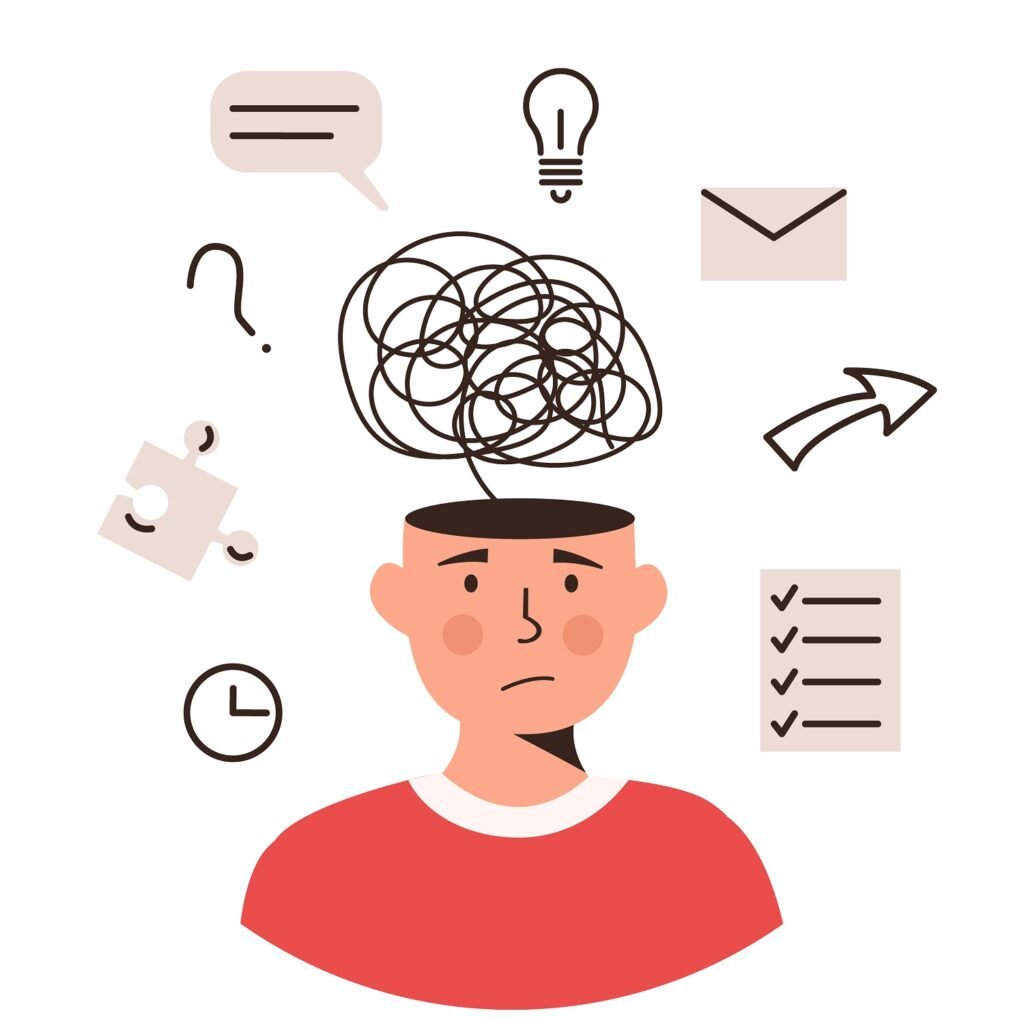
As a Psychiatric Nurse Practitioner, I have seen firsthand how many people, including mental health professionals, often underestimate the far-reaching impact of Attention Deficit Hyperactivity Disorder (ADHD). This neurodevelopmental disorder affects millions of people globally and can have an impact on every aspect of an individual’s life, not just academic and professional.
Patients often ask me, “Wait, can I really have ADHD if I did well in school?” The answer to that question is a resounding “yes,” and in fact is far more common than most people think.
To better understand the impact of ADHD, let’s take a look at two of my patients who came to me seeking help.
- The first was a highly successful business professional who, despite his work success, was feeling overwhelmed and stressed in other domains of life. He struggled with disorganization and forgetfulness in his personal life, often forgetting important appointments and events with family and friends. This led to feelings of embarrassment and frustration and, eventually, symptoms of depression and anxiety.
Despite seeing several psychiatrists / psychiatric nurse practitioners and being diagnosed and treated for depression and anxiety, he was told his symptoms “could not be ADHD” because he was able to make it through school and have a high-achieving job. His ADHD went untreated for years, and his non-professional quality of life continued to decline. Eventually, he was diagnosed with ADHD and started on the proper medication regimen, and the root cause of his problems became clear. He was treated with the proper medication regimen, drastically improving his symptoms.
- The second patient was a stay-at-home mother who felt like she was constantly struggling to keep up with the demands of her life. Her home was disorganized and cluttered, and she felt overwhelmed and stressed. She would often start projects without seeing them to completion (only finishing 60-70% and then have significant difficulties wrapping up the final details). She frequently lost objects around the home and spent significant time searching for things. This began affecting her relationships with her family, including her significant other. Her husband and family would often complain that she did not make an effort to finish what she started and that others needed to “pick up her slack.” It wasn’t until she was diagnosed with ADHD that she realized her struggles were not just a result of being a busy mother and being “scattered” (as she was told by others) but were actually related to a larger issue that could be addressed with proper treatment.
These examples above are just two of the many ways ADHD can impact life outside of academia and one’s profession.
Social impact
Individuals with ADHD may struggle to keep up with the demands of social situations and may find it difficult to listen and communicate effectively with others. They may also have trouble with time management and may be perceived as unreliable by friends, family members, and partners. This can result in feelings of isolation, low self-esteem, and relationship difficulties.
Forgetfulness is another common symptom of ADHD that can significantly impact an adult’s life. People with ADHD may struggle to remember important dates, appointments, and tasks. This forgetfulness can lead to missed deadlines, missed opportunities, and a feeling of being disorganized and overwhelmed.
Financial Impact
ADHD can also impact an individual’s financial stability. Individuals with ADHD may have trouble with money management, leading to financial problems, debt, and stress. They may also struggle to stick to a budget and may make impulsive purchases, leading to financial difficulties. This can contribute to stress and anxiety and impact an individual’s ability to meet their daily needs.
Furthermore, ADHD can have a negative impact on an individual’s sense of self-esteem and self-worth. Those with ADHD may struggle with feelings of frustration and disappointment as they try to manage their symptoms and achieve their goals. They may also feel that they are not living up to their full potential and may compare themselves unfavorably to others, leading to feelings of hopelessness and low self-esteem.
So what does this mean?
In conclusion, ADHD is a complex condition that can significantly impact an individual’s life beyond just work and school. It can affect relationships, physical and mental health, financial stability, and a sense of self-esteem. It is important for individuals with ADHD to seek help and support to manage their symptoms and improve their quality of life. With the right support and resources, individuals with ADHD can lead fulfilling and successful lives. If you or someone you know is struggling with ADHD, it is important to reach out for help. Your mental and emotional well-being is important. There are resources are available to support you.